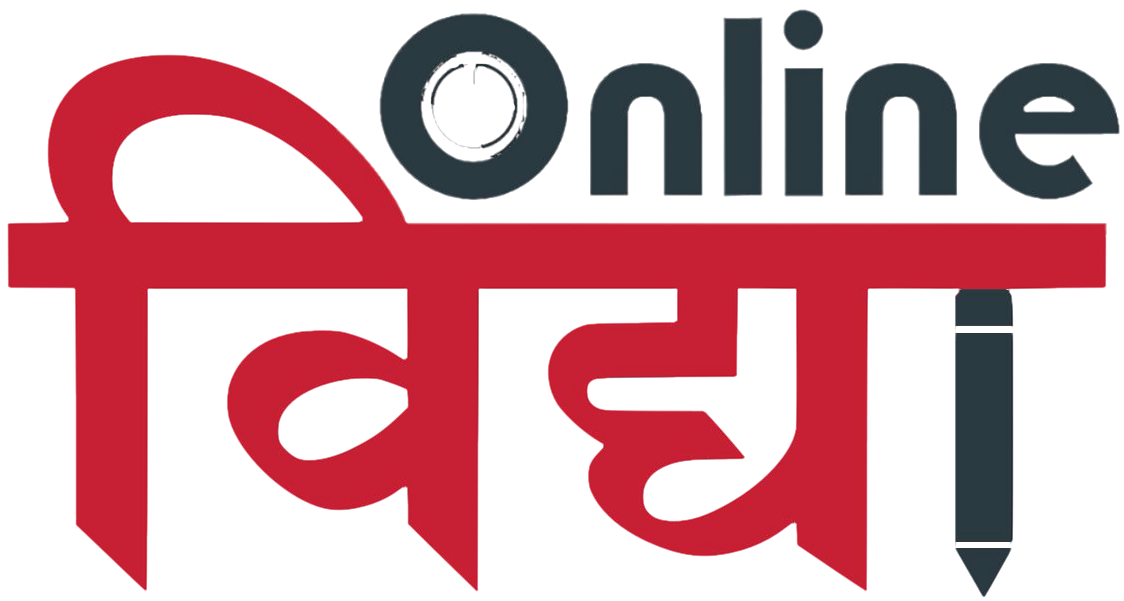Specializations
Courses Available
Courses
![HR Salary in India [For Freshers & Experienced 2024]](https://www.onlinevidyaa.com/admin-images/blog/BLOG 102 HR Salary in India [For Freshers & Experienced 2024].webp)
HR Salary in India [For Freshers & Experienced 2024]
HR Salary in India [For Freshers & Experienced 2024],Feb 06, 2024
Information
Feb 06, 2024
11787 Views
- Share:
In the dynamic landscape of India's workforce, understanding the complexities of Human Resources (HR) salaries is crucial for both aspiring students and seasoned working professionals. As we delve into the realm of HR salaries in 2024, this exploration caters to the unique perspectives of freshers seeking their professional journey and experienced working professionals navigating the ever-evolving career landscape. For students aspiring to join the HR field, insight into the entry-level compensation packages becomes a vital consideration. Meanwhile, experienced professionals seek to align their expertise with competitive and rewarding remuneration.
The year 2024 presents a backdrop of shifting economic trends, technological advancements, and evolving corporate expectations, shaping the contours of HR salaries in India. From recruitment and talent management to employee engagement and compliance, HR professionals play a pivotal role in organizational success. This exploration will shed light on the nuanced factors influencing HR salaries, considering market demands, skillsets, and the overall economic milieu. Whether they are a student charting their career path or a seasoned professional seeking to benchmark their earnings. The motive of this blog post is to provide valuable insights to individuals seeking jobs in the HR domain and also about the salary packages in this domain in India for both freshers and experienced individuals.
Also Read: Online Degree courses for Armed forces Needs and Benefits
What is HR Management?
Human Resource Management (HRM) is a complex discipline that covers a comprehensive set of practices designed to effectively manage an organization's workforce. HR Management focuses on improving the contributions of employees to achieve organizational goals. This strategic approach involves various functions, including recruitment, training, performance management, employee relations, and compliance with employment laws. HR managers play an important role in lining up the employees with the objectives of the companies by ensuring that the organization has the right talent in the right direction.
One fundamental aspect of HR management is talent acquisition, where HR professionals engage in recruiting, interviewing, and selecting candidates to fill open positions within the organization. Beyond hiring, Human Resource Management (HRM) is significant in starting a positive work environment and employee engagement. HR management involves implementing strategies for professional development, performance appraisals, and creating avenues for open communication between employees and management. Additionally, HR managers are responsible for developing and enforcing policies that ensure compliance with labor laws, creating a fair and inclusive workplace. In the extract, HRM is not merely an administrative function; it is a strategic partner that contributes to organizational success by cultivating a motivated, skilled, and satisfied workforce. As businesses navigate the complexities of the modern workplace, HR management remains an essential function in nurturing human capital, driving employee satisfaction, and ultimately fostering an environment conducive to achieving overall corporate objectives.
Also Read: Five Course Trends for 2024
Who are HR Managers?
HR managers, or Human Resource managers, are professionals responsible for supervising various aspects of the workforce within an organization. The roles of an HR manager involve strategic planning, talent acquisition, employee engagement, and compliance with employment laws. HR managers play a crucial part in shaping company culture, fostering positive employee relations, and contributing to the overall success of the organization. They are instrumental in implementing HR policies, managing recruitment processes, and ensuring the well-being and development of employees throughout their tenure with the company. Additionally, HR managers often serve as key advisors to senior leadership on human capital matters.
What are the roles and responsibilities of an HR Manager?
The role of an HR manager is pivotal within an organization, as it involves supervising various aspects of the employee lifecycle, ensuring a positive work environment, and aligning human resources with the overall strategic goals of the company. The key responsibilities of an HR manager are diverse and encompass key functions that contribute to the success of the organization.
1. Recruitment and Staffing:
- One of the primary responsibilities of an HR manager is to manage the recruitment process. The recruitment process of an organization involves identifying staffing needs, developing job descriptions, posting job openings, and conducting interviews to select the most suitable candidates.
- HR managers are also tasked with developing and maintaining effective recruitment strategies to attract top talent to the organization.
2. Employee Onboarding and Orientation:
- HR managers play a crucial role in ensuring a smooth orientation process for new hires. This includes organizing orientation programs, providing necessary training, and facilitating the integration of new employees into the company culture.
- HR Managers are responsible for conveying essential information about company policies, procedures, and expectations to new hires.
3. Employee Relations:
- Maintaining positive employee relations is a key responsibility. HR managers are involved in addressing workplace issues, conflicts, and grievances.
- HR Managers work to start a positive work environment by promoting open communication, resolving disputes, and implementing employee engagement initiatives.
4. Performance Management:
- HR managers are involved in designing and implementing performance management systems to assess and improve employee performance.
- Performance management includes conducting performance reviews, setting goals, providing feedback, and implementing performance improvement plans when necessary.
5. Training and Development:
- Ensuring the continuous learning and development of employees is a critical role. HR managers identify training needs, organize training programs, and facilitate opportunities for skill enhancement.
- HR Managers may also be involved in career development initiatives to help employees progress within the organization.
6. Compensation and Benefits Administration:
- HR managers are responsible for designing and managing the organization's salaries and benefits programs. It also involves evaluating market trends, conducting salary surveys, and ensuring that the organization's offerings are competitive.
7. Policy Development and Compliance:
- Developing and updating HR policies and procedures is a pivotal aspect of the role. HR managers ensure that these policies align with legal requirements and industry standards.
Importance of an HR Manager in an Organization
The role of Human Resource (HR) managers is very crucial for organizations, serving as strategic partners who contribute to overall success. The importance of HR Managers stems from various key functions that impact employee well-being, organizational culture, and the achievement of business objectives. Here are several points highlighting the significance of an HR manager:
- Talent Acquisition and Recruitment: HR managers are instrumental in attracting, selecting, and onboarding top talent. They ensure that the organization has the right individuals with the necessary skills to drive success.
- Workforce Planning: HR managers engage in strategic workforce planning, aligning human resources with the organization's goals. This involves forecasting staffing needs and developing plans to meet future demands.
- Employee Engagement: Initiating a positive work environment is typical for organizational success. HR managers implement initiatives to enhance employee engagement, job satisfaction, and overall well-being.
- Performance Management: HR managers design and implement performance management systems, including goal-setting, performance appraisals, and feedback sessions. They play a pivotal role in ensuring continuous employee development.
- Training and Development: HR managers ensure the continuous learning and development of employees is a key responsibility. HR managers identify training needs, organize relevant programs, and support career development initiatives.
- Employee Relations: Maintaining positive employee relations is essential for a healthy workplace. HR managers address conflicts, mediate disputes, and create avenues for open communication, contributing to a harmonious work environment.
- Policy Development and Compliance: Developing and updating HR policies is vital to ensure compliance with labor laws and regulations. HR managers establish guidelines that promote fairness, equality, and ethical behavior within the organization.
- Diversity and Inclusion: Promoting diversity and inclusion is a growing focus in organizations. HR managers implement initiatives to create inclusive workplaces, recognizing the value of diverse perspectives and backgrounds.
- Strategic Planning: HR managers actively participate in strategic planning, aligning HR practices with overall business objectives. They contribute to organizational success by ensuring that human resources support and drive strategic initiatives.
- Change Management: As organizations change, whether in structure, technology, or processes, HR managers lead change management initiatives. They facilitate smooth transitions, mitigate resistance, and help employees adapt to new environments.
What different roles does an HR Manager play?
1. Assistant Human Resources Manager
2. Human Resources Manager
3. Senior Human Resources Manager
4. Staffing Manager
5. Compensation Manager
- Assistant Human Resources Manager: Assistant Human Resources Managers are professionals who work closely with HR Managers to support various HR functions within an organization. Assistant HR managers play a vital role in recruitment processes, onboarding, and employee relations. Assistant HR Managers assist in developing and implementing HR policies, handling employee queries, and ensuring compliance with labor laws. Additionally, they may participate in performance management, and training programs, and contribute to fostering a positive work environment. Their collaborative efforts help maintain the overall efficiency of HR operations and contribute to the well-being of the workforce.
The roles and responsibilities of Assistant HR managers vary by organization, including tasks like generating reports for audits. The starting salary for HR professionals in India is approximately Rs. 40,000 per month. Assistant HR managers earn an average of Rs. 5.62 lakh annually, with rookies earning around Rs. 2.95 lakh and experienced managers earning approximately Rs. 9.62 lakh per year. - Human Resources Manager: Human Resources Managers, commonly known as HR Managers, are professionals responsible for overseeing the human capital within an organization. They play a pivotal role in various HR functions, including talent acquisition, employee relations, performance management, and policy implementation. HR Manager tasks to create a positive work environment, ensure compliance with labor laws and contribute to strategic decision-making. Their duties involve recruiting and retaining top talent, fostering employee development, and maintaining a balance between organizational objectives and the well-being of the workforce.
HR managers in India can expect an average annual salary of approximately Rs. 7.03 lakh, markedly surpassing the overall average HR manager salary in the country, which stands at around Rs. 2.92 lakh per annum. - Senior Human Resources Manager: A Senior Human Resources Manager is a seasoned professional in the HR field with extensive experience and leadership responsibilities. They supervise strategic HR initiatives, manage complex HR functions, and play a key role in shaping organizational policies. Senior HR Managers often lead teams, contribute to executive decision-making, and ensure alignment between human resources and overall business objectives.
In India, experienced HR managers earn an average salary of approximately Rs. 11.81 lakh per year, with the potential to reach up to Rs. 30 lakh annually. - Staffing Manager: A Staffing Manager is responsible for overseeing the recruitment and hiring process within an organization. A staffing manager works closely with hiring managers to understand their staffing needs, create job descriptions, source candidates, conduct interviews, and make hiring decisions. They also handle onboarding and orientation processes for new employees and ensure compliance with employment laws and regulations. Additionally, Staffing Managers may be involved in workforce planning, talent management, and employee retention initiatives.
In India, a Staffing Manager's annual salary typically ranges from Rs. 7.5 lakh for entry-level roles to Rs. 20 lakh for experienced professionals. - Compensation Manager: A Compensation Manager is responsible for designing, implementing, and managing the compensation and benefits programs within an organization. They analyze market data to determine competitive salary ranges, develop and administer incentive plans, and ensure compliance with compensation laws and regulations. Compensation managers also collaborate with HR and finance teams to create and manage the budget for employee compensation and benefits. Additionally, Compensation Managers may conduct salary surveys, evaluate job positions, and provide recommendations for salary adjustments and promotions.
In India, a Compensation Manager can anticipate a monthly salary of approximately Rs. 1 lakh, making it a highly lucrative position. Responsible for overseeing promotions, the Compensation Manager determines the distribution of benefits among employees.
Types of MBA
| Online Global MBA | MBA Distance Education |
| Online MBA for Working Professionals | MBA Dual Specialisation online |
Popular Specializations of Online/ Distance MBA
Other Online Executive MBAs in Demand
Demanding Online/Distance MBA Dual Specializations
Frequently Asked Queries
A1. The average salary for entry-level HR professionals in India in 2024 typically ranges from INR 2.5 to 4.5 lakhs per annum. However, specific figures may vary based on factors like the company's size, location, and industry.
A2. Yes, several companies provide additional perks and benefits to HR professionals, including health insurance, performance bonuses, provident funds, gratuity, and employee assistance programs. Some organizations may also offer flexible work arrangements and professional development opportunities.
A3. Annual increments for experienced HR professionals in 2024 typically range from 8% to 15%, depending on factors such as individual performance, company performance, and market trends.
A4. Several factors influence HR salaries, including experience, education, industry, location, and the size of the organization. Advanced degrees, certifications, and specialized skills can also contribute to higher salary packages.

Meet Our Counselling Experts
Get 100% Free Career Counseling




PlacementPartners










Schedule Your 30 min Couselling Session With Today!!
Select a Date of your choice :
You Have Selected Slot on .

